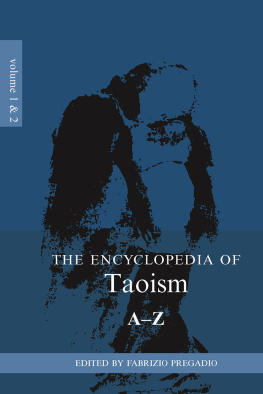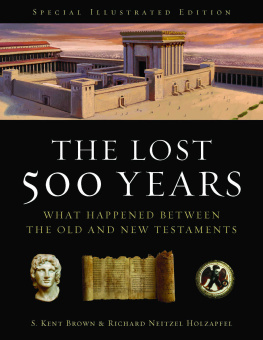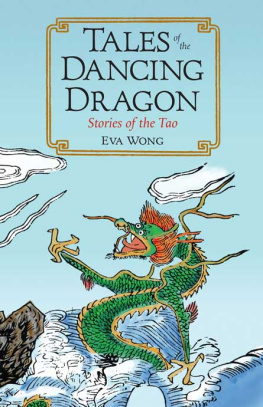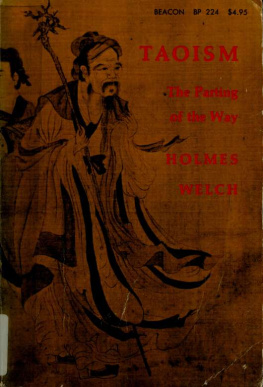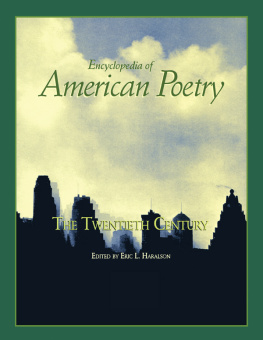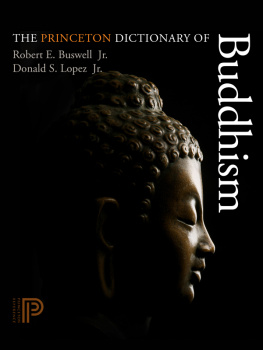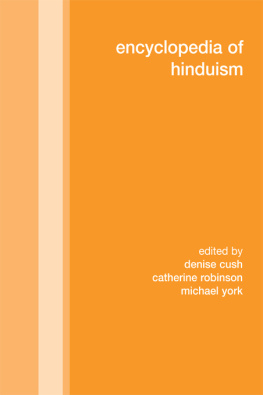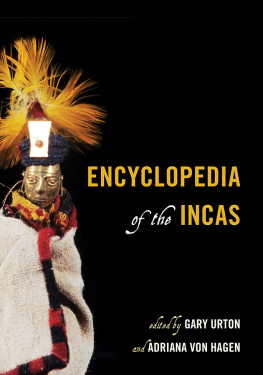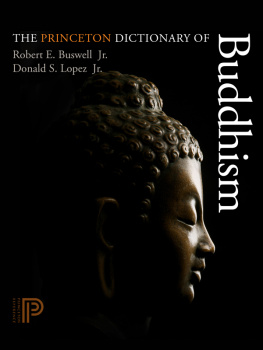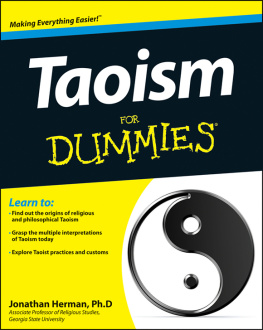Foreword
by
T. H. Barrett
Taoism has been for over half a millennium the East Asian religious tradition most consistently despised and rejected in the West, esteemed if at all for the wrong reasons, and seldom enough at that. As early as 1569 the pioneering missionary Friar Gaspar da Cruz, O.P., while at one point conceding the great respect shown by the Chinese to Taoist priests, avers at another that they live wickedly and filthily. This was perhaps due to a simple misunderstanding that caused him to assume that all Taoist priests were supposed to be celibate. But to the Counter-Reformation sensibilities of later Jesuits like Matteo Ricci and his many successors the very idea of a non-celibate priesthood must have been quite disturbing in any case, so that we subsequently find very little dissent from this first damning indictment. Even in the nineteenth century the Protestant missionaries, who often arrived as married couples, continued to heap scorn upon the Taoists, though now as part of a generally negative assessment of Chinese culture that contrasted with the positive evaluation of some aspects of China espoused by those who followed Ricci's missionary strategy.
It is true that one or two ancient texts associated with the Taoist tradition were in the late nineteenth century clasped firmly to the bosom of Western theosophy, a cultural movement that manifested a great generosity of spirit towards Asian wisdom whilst usually denying any validity to the views of contemporary Asians themselvesthe lofty mysticism of a Laozi was held to be something quite beyond the grasp of his latter day heirs, intelligible only to illuminati on the theosophists own spiritual plane. Whether missionaries or mystics, then, the received opinion in the West would have been that republished as recently as 1990 in A Confucian Notebook by Edward Herbert, which first appeared in 1950. In this work we are summarily informed that Taoism beyond those favoured early texts is simply a synonym for superstition and imposture. In such a hostile climate accurate knowledge concerning Taoism was until the very end of the twentieth century remarkably hard to come by. Matters of tone and judgment apart, a handbook such as Samuel Couling's Encyclopaedia Sinica of 1917, for example, demonstrates a completely insouciant vagueness on such basic questions as the size of the Taoist canon or the number of texts it contains.
This is all the more regrettable since by the time that Couling's handbook appeared a certain amount of progress had been made in investigating the canon by scholars writing in French. The gradual emergence of the field of Taoist Studies during the twentieth century in fact affected the English-speaking world at a remarkably late point: amongst pioneers we may find Chinese (though not that many, given the anti-religious spirit abroad in the Republican and early Communist eras), Japanese, French, Germans and other Europeans, but with the exception of researchers in the History of Science scarcely a soul from Great Britain, the English-speaking Commonwealth, or the United States. Nor has the rectification of this anomaly seen anything like a smooth progress. Too many engaged in the task of building up and spreading the knowledge originally available only in French were lost to us before their time, from Henri Maspero, who died in Buchenwald in 1945, to Anna Seidel, Michel Strickmann and Isabelle Robinet, whose more recent deaths have dealt successive blows to the field. The first named had scarcely any students, and was only able to exert a posthumous but utterly crucial inspiration through his writings, but we owe a particular debt to the others, whose teaching activities in the late twentieth century (together with those of one or two less unfortunate scholars, such as K. M. Schipper) finally established the small corps of researchers without whom the production of this encyclopedia would not have been remotely possible.
Even so the unprecedented large-scale collaborative effort required, calling on expertise right across the globe, would probably have been expended in vain were it not for the Herculean labours of the editor. When I was first approached to suggest the name of someone who could undertake this task, I realized that only a scholar with broad international contacts and the highest academic standards would be capable of bringing such a project to completion. Little did I realise that persistence, too, would be a quality that Fabrizio Pregadio would have to call upon in full measure, and that an undertaking conceived on one continent and based on the religious traditions of another would after a more than elephantine period of gestation eventually see the light of day in the New World of an entirely different hemisphere. For all the minor shortcomings that may be discovered in this compilation, and for all the scholarship it may contain that may one day appear outdated and in need of revision, he at least should be absolved from any blame and indeed allowed a full measure of self-congratulation, for he has worked as hard and as meticulously as anyone possibly could.
The publishers, too, should surely allow themselves a measure of self-congratulation, and especially those individuals who have helped sustain the project throughout the institutional changes on their side that have been almost as dramatic as those witnessed by the editor in his academic travels. Given thatwith the notable exception of the work of Joseph Needham and his associates the British academic contribution to the study of Taoism has been more or less nugatory, I am particularly glad that the British publishing industry at least has played its part in rectifying the wrongs of the centuries. But now is no time for us in these small islands to rest upon our laurels. As China once more takes up the leading role amongst nations commensurate with the size of its population and the richness of its cultural heritage, the very insularity that once allowed our forefathers in a fit of imperial absent-mindedness to treat China with an insolence that was not even perceived as such at the time still needs to be broken down and replaced with a more fraternal respect and, crucially, understanding. I sincerely hope that the small contribution to international cultural awareness we have helpedwith so many othersto make in uncovering one of the more neglected aspects of China's heritage through this encyclopedia will be by no means the last.

